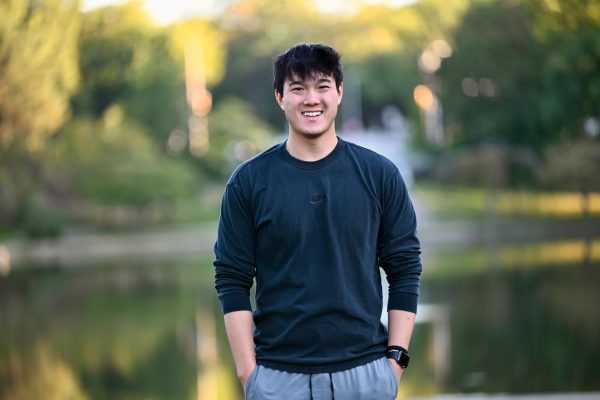Last night, the words “[w]arning, the following program contains love, lust and sexy democracy” obnoxiously blared from my laptop as the screen scanned over gym-honed mirror-lovers in a luxury villa off the coast of Hawaii. This is referring to none other than the reality show “Love Island” and its cheesy yet iconic narrator Matthew Hoffman, who has been frequenting my late-night entertainment program in the past few weeks. The idea of plopping a group of hot people on a remote island in the pursuit of true love may sound ridiculous and artificial, but it doesn’t make the show any less addictive.
That observation raised a question in my mind: If these shows are so overtly fake, why do we care so much? Dating shows like “The Bachelor,” “The Bachelorette,” “Love Island” and “Are You the One?” have made it onto Time’s list of the 50 most influential reality TV shows; in fact, 39% of all reality TV is dating shows, making it the most popular genre.
The answer lies not merely in the art of show business—scenes pumped with undiluted melodrama, episodes ending in annoyingly witty cliffhangers and clashing personalities destined for heated arguments and scandal. Rather, we must trace the obsession back to ourselves, to our unrelenting desire to form so-called “parasocial relationships”: one-sided relationships in our minds between ourselves and someone we don’t actually know. Ranging anywhere from harmless affection to a borderline pathological fictional love connection called “fictophilia,” cultivating these bonds has never been easier—actors, singers, comedians, athletes and reality TV stars are everywhere.
Every time we tune in to our favorite dating show, we feel like we are making real connections with real people. Unlike actors in scripted programs, reality TV stars are being themselves, not playing a character. Naturally, their lives appear more accessible to us, and with the help of social media—a portal to offscreen drama and fan interactions—,we are kept engaged long after the hour-long episode has ended.
Fan-celebrity connections appear to be a win-win for both parties involved. Fans make a new “fictional” friend, while celebrities gain money and an avalanche of fame. Notably, in 27 seasons of “The Bachelor,” only one bachelor is currently married to the woman who received his “final rose” in the last episode. The low couple success rates across all dating shows speak for themselves: Contestants aren’t really on a quest to find love; rather, they came to be swept into a whirlwind of public appearances fueled by the fascination of their lives by millions.
But having these somewhat obsessive connections to near strangers may not be such a big win after all. While loneliness is assumed to be the cause of parasocial bonding—as these bonds can make up for a lack of human connection in our real lives—there is no consistent correlation. For the majority, these bonds remain trivial at most—a component of small talk or a brief episode of dinner table chatter. Still, parasocial bonding can be an indicator that something doesn’t add up in our personal lives.
For people who have a tendency to avoid emotional intimacy, or what psychologists call “avoidant attachment,” it comes as no surprise that parasocial bonds become an alternative to real-life relationships. This could be the start to a vicious cycle: Avoidant attachment could result in increased parasocial bonding, which can lead to fewer interactions with friends and family as fans invest their time into following the lives of a celebrity.
Parasocial bonding doesn’t have to be a bad thing, nor is it atypical; in fact, it’s intrinsic to human behavior. Still, it should be a starting point for reflection. Ask yourself: Are you spending a little too much time getting to the bottom of a stranger’s personal life, or consistently returning to the melodrama happening within the walls of the “Love Island” villa? In that case, maybe it’s a good time to take a break, or break up with your “parasocial” friend. Step away from vigilantly following celebrities’ Instagram profiles or, if need be—and as hard as it may sound—,stop watching a show entirely.
Granted, reality TV shows have mastered the art of bringing gossip to viewers with short attention spans. However, next time I find myself clicking the play button on Season 3, episode 20 of “Love Island,” I might just resist the temptation. Spending time with real friends sounds much better, anyways.




